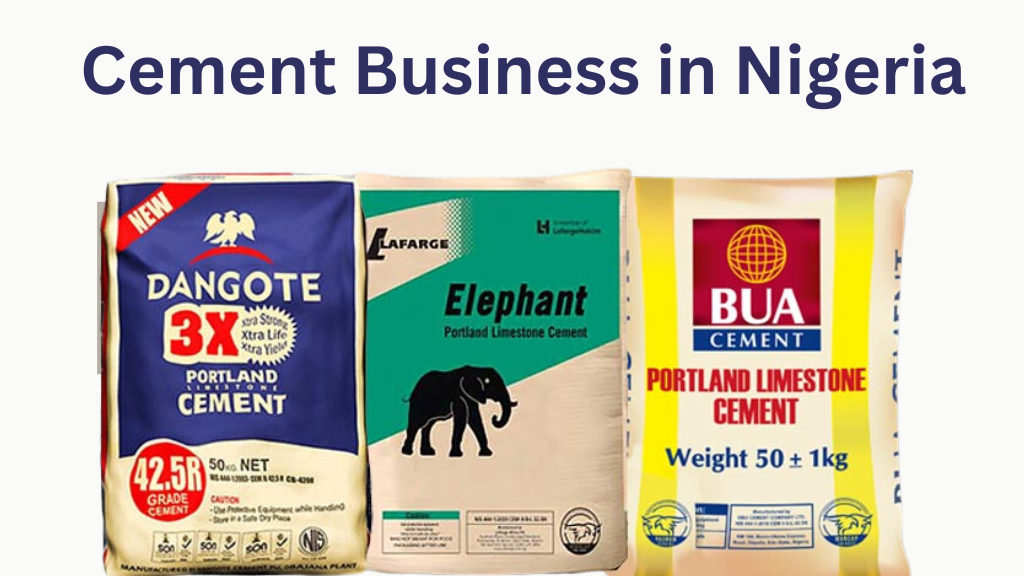Are you considering diving into the thriving construction industry in Nigeria? Starting a cement business can be a promising venture, given the country’s continuous infrastructure development. Yet, launching such an enterprise requires meticulous planning, an understanding of the market landscape, and adherence to regulatory frameworks. Here’s a comprehensive guide to help you navigate the steps applied in starting a cement business in Nigeria.
Tips for Succeeding in the Nigerian Cement Industry
Conduct Thorough Market Research
Before embarking on your business journey, delve into extensive market research. Understand the demand for cement in various regions of Nigeria. Analyze competitors, identify potential customers within the construction sector, and grasp the evolving trends shaping the industry.
Craft a Detailed Business Plan
A well-structured business plan is the backbone of any successful venture. Outline your business objectives, target market segments, marketing strategies, financial projections, and operational plans in detail. This blueprint will guide your business decisions and serve as a roadmap for success.
Fulfill Legal and Regulatory Requirements
Ensure your business is legally compliant by registering with the Corporate Affairs Commission (CAC) in Nigeria. Obtain the necessary permits and licenses required to operate a cement business. Register with the Federal Inland Revenue Service (FIRS) for tax purposes and secure a Tax Identification Number (TIN).
Choose an Ideal Location and Establish Infrastructure
Selecting the right location for your cement business is crucial. Consider proximity to raw materials, transportation routes, and accessibility to your target markets. Establish robust infrastructure, including warehouses, transportation facilities, and handling equipment necessary for storing and distributing cement effectively.
Develop a Strong Supply Chain
Forge solid partnerships with cement manufacturers or suppliers to ensure a consistent and reliable supply of high-quality cement. Create a well-organized distribution network that efficiently reaches your target customers, encompassing retailers, wholesalers, and construction firms.
Implement Effective Marketing Strategies
Invest in building a strong brand identity for your cement business. Develop compelling marketing materials, create an online presence, explore advertising opportunities, and establish partnerships within the construction industry to increase visibility and sales.
Manage Finances Wisely
Determine the initial investment required for setting up your business, covering infrastructure, inventory, and operational expenses. Implement sound financial planning practices, maintain accurate financial records, and explore funding options like bank loans or investors if needed.
Efficient Operational Management
Maintain strict quality control measures to ensure your product meets industry standards and customer expectations. Implement effective inventory management systems and logistics to minimize waste and maximize operational efficiency. Prioritize excellent customer service to build trust and loyalty among your clientele.
Compliance and Sustainability
Adhere to environmental regulations concerning cement production and waste management. Consider integrating sustainable practices into your operations, contributing to both environmental conservation and a positive brand reputation.
The challenges of the cement industry in Nigeria’s
Here are the challenges faced by the cement industry in Nigeria:
- Infrastructure deficiency
- Inconsistent power supply
- Inadequate raw material supply
- High production costs
- Regulatory environment
- Competition
- Diversification of construction materials
- Economic uncertainty
These challenges impact the operations and growth of the cement industry in Nigeria.
READ THIS –Youth Empowerment Programs in Nigeria 2024: A Comprehensive Guide
Conclusion
Starting a cement business in Nigeria demands meticulous planning, market understanding, and adherence to legal frameworks. It’s advisable to seek guidance from industry experts or mentors to enhance your chances of success. By following these steps diligently, you can embark on a rewarding journey in the dynamic world of cement business in Nigeria.
People also ask
How much does it cost to start a cement business?
How to become a cement dealer in Nigeria?
How much profit is in the cement business?
How do you manage a cement business?
How to buy cement directly from Dangote Cement?
How can I become a Dangote Cement distributor?
How much is a bag of Dangote cement now?
What business can you start with 200k in Nigeria?
What business is lucrative in Nigeria?
How many bags of cement can the Dangote truck carry?
How many cement companies are there in Nigeria?
How can I improve my cement business?
What is the target market for cement?
How can I increase my sales quickly?
Is there a demand for cement?
Is Dangote Cement Made in Nigeria?
What are the top 3 cement companies in Nigeria?
Who is the owner of Dangote Cement?
Which cement is powerful?
Which brand of cement is best?
Which is the largest cement factory in Nigeria?
